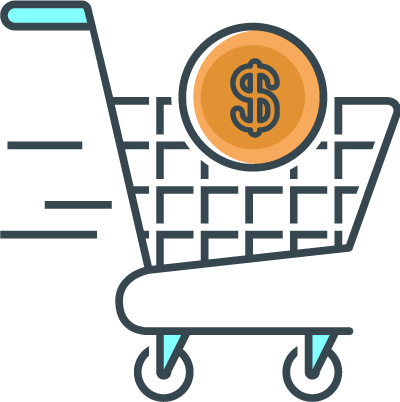Table of Contents
What is BNPL (Buy Now, Pay Later)?

Buy Now, Pay Later, BNPL for short, is a type of short-term financing that gives consumers the ability to purchase the goods immediately but pay at a later time. Some BNPL purchases are interest-free while others start to accrue interest after a specific time frame. BNPL flourishes in the retail industry; however, many other industries are beginning to see the value of offering these programs to their customers.
Many companies work with third-party payment processors that handle the BNPL process. Popular third-party companies include Klarna, Affirm, Afterpay, and Uplift. Even credit card processing companies, like Chase and American Express, have started implementing BNPL characteristics.
How Does BNPL Work?
Each business will have slightly different BNPL programs; however, there are some common characteristics across most programs. The process generally has three steps.
- The customer makes a purchase and opts for BNPL at checkout.
- The customer will get approved in a matter of seconds and remit a small down payment on the purchase, which at a minimum is usually 25%.
- The customer receives the product or service like normal. They then remit regular payments in a similar style to an installment loan. These payments are paid via debit card, credit card, or bank account transfer.
BNPL differs from using a credit card since the payments can be drawn out over a few months, depending on the purchase price. In addition, most BNPL purchases come with zero percent interest rates, while credit cards can carry interest rates upward of 20%, making BNPL more appealing to customers.
What are the Advantages and Disadvantages of BNPL?
There are advantages and disadvantages for both the company and the customer when using BNPL. The first advantage is the ability to appeal to a broader customer base, especially if the products and services are pricier. The cost of goods and services has a significant impact on purchasing decisions. By giving customers the ability to finance the purchase, companies may see higher sales.
However, one of the top disadvantages is that payments can be hard to track, and there is a heightened risk of customers foregoing payments altogether. Companies have little recourse against consumers that default on payments because they aren’t seen as traditional lenders or creditors.
How is BNPL Regulated?
Since BNPL is a relatively new industry, it is not regulated like mortgages and other financing options. The Consumer Financial Protection Bureau, CFPB, is considering adding regulation rules to this growing industry. The CFPB is tasked with ensuring consumer protection in the financial industry, identifying several concerns that the BNPL industry is presenting.
For one, a BNPL loan does not hold the same disclosures and protections that a traditional mortgage or credit card provides. This means that BNPL companies aren’t limited to the late fees they can charge customers. Another threat that the CFPB has outlined is the risk of data harvesting. Since BNPL programs are hosted on digital apps, companies can gather and sell consumer information.
The CFPB is also concerned about the spending habits of consumers when using BNPL programs. When a consumer makes a purchase through BNPL, there is no requirement to disclose the amount lent to the consumer. This creates an issue when the consumer owes a significant amount to companies, but the amounts don’t show up on a credit check.
How Does BNPL Impact the Financial Service Sectors?
The financial service sectors are seeing a direct impact on companies offering BNPL. Since there is no formal credit check, companies often extend BNPL terms to consumers who wouldn’t ordinarily qualify under traditional lending requirements. This means that consumers are beginning to overspend, increasing the risk of default on other loans.
In addition, when credit checks are run to determine lending ability, outstanding BNPL loans aren’t included. This can result in making a lending decision based on an inaccurate picture of financial health. In the near future, we can expect the CFPB to tighten reporting policies to avoid a negative impact on the financial service sectors. For more information on the impact on your financial service business, contact Naehas today.
